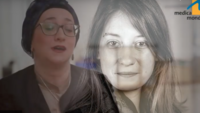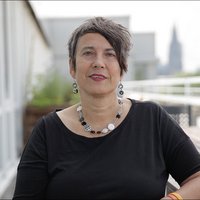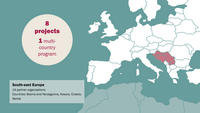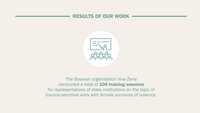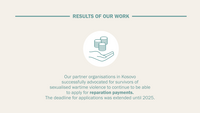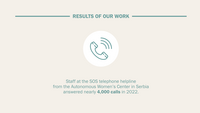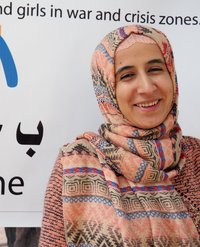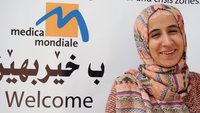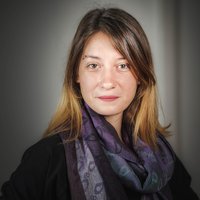Women in South-east Europe need protection from violence
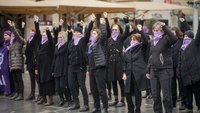
During the Yugoslav Wars in the 1990s, tens of thousands of women and girls were raped, tortured and sexually exploited. Even today, violence against women is widespread in south-eastern Europe. Despite some progress, such as the introduction of a war pension to compensate survivors of sexualised wartime violence, the process of coming to terms with the violent conflict is still very slow. Many survivors continue to suffer from war-related trauma and social stigmatisation, and they lack sufficient access to appropriate offers of support. National and regional political discussions mostly ignore the perspective of the survivors. In general, there is still a prevailing culture of silence regarding the war.
Ten facts on women’s rights in Southeastern Europe
1. Sexualised wartime violence in numbers
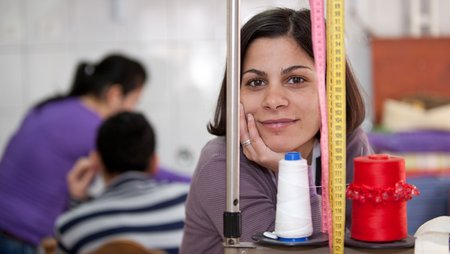
Estimates suggest that as many as 50,000 women and girls in Bosnia and Herzegovina have experienced sexualised wartime violence. In Kosovo it is about 20,000, and in Croatia 3,000. No reliable data is available for Serbia. This violence they experienced, and the social exclusion and stigmatisation that go along with it, has effects that spread through their families. It has been shown that trauma symptoms can be passed on to the next generation.
2. Sexualised violence today
Sexualised and gender-based violence (SGBV) is still widespread in the region today. 70 per cent of all women aged 15 and older have experienced violence, sexual harassment and/or stalking, according to a study conducted by the Organisation for Security and Cooperation in Europe (OSCE) in Albania, Bosnia and Herzegovina, Montenegro, northern Macedonia, Serbia, Moldova and Ukraine. This violence is often rooted in wartime experiences and frequently takes place within families. With the outbreak of the Covid-19 pandemic, violence against women increased. In 2021, Croatia recorded eleven femicides. In Serbia, at least 20 women were murdered because of their gender.
3. Women of ethnic minorities experience multiple discriminations
Many women who belong to ethnic minorities, such as Roma, Balkan Egyptians or Ashkali, have been subjected to sexualised wartime violence. Even today they are still subjected to violence and discrimination almost everywhere in the region. Most of them live in poverty and difficult social circumstances, with poor access to health services or education. This particularly affects girls, who are often married off at a young age.
4. Children of war
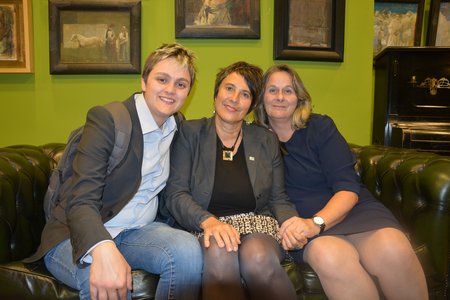
In July 2022, the parliament of the Federation of Bosnia and Herzegovina unanimously passed a draft law that would give the first legal recognition to young women and men born out wartime rape. Despite this success, the ‘Children of War’ still experience stigmatisation exclusion and discrimination. Compared to other young adults, children born out of rape suffer more frequently from psychological problems such as depression, anxiety and low self-esteem. During their childhood they often experienced emotional deprivation.
5. Rights and protection for survivors of sexualised violence
The individual countries in the region have ratified a range of international agreements on protection against gender-specific discrimination and violence. Furthermore, their constitutions and the laws based on them expressly prohibit discrimination based on gender. However, the standards for protection of survivors of sexualised wartime violence are often insufficient since there is no coherent legal framework.
6. Compensation for survivors
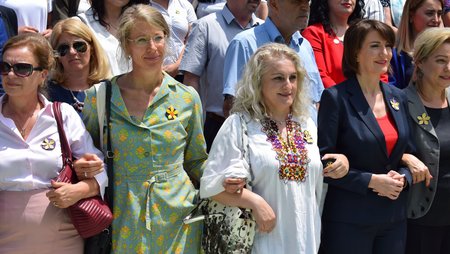
It is a success for the women’s movement in the region: survivors of sexualised wartime violence in Kosovo (since 2018), in Bosnia and Herzegovina (since 2006) and Croatia (since 2015) now have the right to claim compensation in the form of a monthly pension. However, complex and lengthy application procedures increase the risk of retraumatisation. As a result, many survivors are reluctant to apply. And the laws include both time- and location-related restrictions on eligibility. For example, survivors in Kosovo only had until the beginning of 2023 to submit their application. Only recently was this deadline extended by two years. Our partners are calling for this restriction to be lifted completely.
7. Insufficient access to health services
Healthcare institutions are often the first points of contact for survivors of sexualised and gender-based violence. Unfortunately, they are often met by the prejudices and discriminatory behaviour of the healthcare staff, leading to experiences of shame and stigmatisation. In state-run healthcare facilities, there has so far been a lack of binding standards which would ensure an appropriate manner of dealing with survivors.
8. Work to deal with the past characterised by nationalistic historical narratives
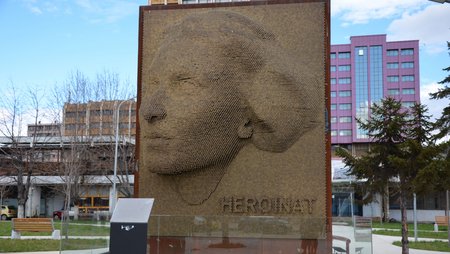
Memorial events held as government initiatives tend to concentrate on the victims or survivors of whichever ethnic group now prevails. Even schools and universities do not always portray the whole picture when it comes to the conflicts in the 1990s. And in all of this, there is hardly a mention of the sexualised wartime violence, its causes or its consequences.
9. Inadequate prosecution of sexualised wartime violence
Individual countries have seen an increase in the number of prosecutions of war criminals for crimes connected with sexualised wartime violence. However, the numbers of cases are still extremely low in comparison with the total number of survivors. Most perpetrators are still at large. This discourages other survivors from taking their cases to court.
In general, impunity for sexualised violence is high. In Croatia and Serbia the governments are planning to tighten criminal law or have already done so. But politicians, the judiciary and the police do not enforce the existing laws. The same applies to Bosnia and Herzegovina: women who survive rape there have, for example, no assured access to free support – even though the law requires precisely this.
10. Regional networking
In the individual countries of Southeastern Europe there are a number of different civil society women’s rights organisations working on the issue of sexualised wartime violence. However, their effectiveness is often very local, without any common, cross-border agenda. In order to enhance the impacts and influences of women’s rights work, there needs to be a sharing of lessons learnt and an exchange of expertise, including “best practices”. This cross-border cooperation also needs some coordination.
(Updated: 06/2023)
Facts & figures from our practical work
Please support this work by making a donation!
Partner organisations:
- Bosnia and Herzegovina: Association Žena BiH Mostar, Budućnost, Center of Women’s Rights, Medica Zenica, Forgotten Children of War, Vive Žene
- Kosovo: Kosova Rehabilitation Centre for Torture Victims (KRCT), Medica Gjakova
- Croatia: Centre for Women War Victims – ROSA
- Serbia: Association of Roma „Danica“ Pančevo, Roma Women of Vojvodina, Autonomous Women Center, Youth Initiative for Human Rights (YIHR), Women in Black
Project priorities:
- Feminist process of coming to terms with the past
- Improved healthcare services for survivors of sexualised violence
- Regional networking of women’s rights organisations
Funding and funders:
- German Federal Ministry for Economic Cooperation and Development (BMZ)
- Louis Leitz Foundation
- Own resources
Source: Annual Report 2022
Focal points of work
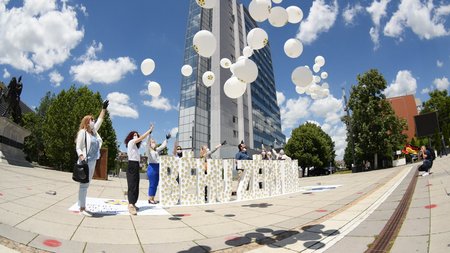
The wars in former Yugoslavia may have taken place more than 20 years ago, the effects can still be felt today. The growing political tensions in the face of Russia’s war of aggression make it clear how reconciliation work and support provision is still very important today for survivors of sexualised wartime violence, their families and their societies.
Together with partner organisations in Bosnia and Herzegovina, Kosovo, Serbia and Croatia, medica mondiale places a particular emphasis on processes of dealing with the violent past and encouraging reconciliation. The aim is to bring about positive changes for survivors of sexualised violence at all levels: political, institutional, societal and individual. Survivors, their families, and subsequent generations all have a right to truth, recompense and justice. These rights need to be upheld.
The work has three priorities:
1. Preventing violence against women
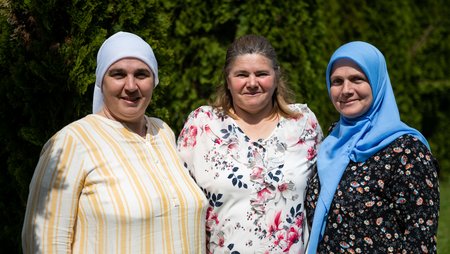
In order to prevent sexualised violence, it is necessary to take a critical and transparent approach to the past, dealing with the standards and values in society that are actually discriminatory. A range of activities can contribute to transforming awareness at various levels, helping to lend visibility to and assert consideration of the perspectives and needs of survivors of sexualised wartime violence.
Feminist, inter-ethnic remembrance work
Seven women’s rights organisations from Serbia, Kosovo, and Bosnia and Herzegovina joined with medica mondiale to develop a regional programme whose long-term aim is to establish a feminist, inter-ethnic culture of remembrance. In Serbia for example, the colleagues of the Autonomous Women‘s Center, Women in Black and the Youth Initiative for Human Rights (YIHR) hold public actions to promote a critical approach to memories of the war.
Educational offers on sexualised wartime violence
The partner organisations are developing educational and training materials and courses on the topic of sexualised wartime violence for use with youth, school pupils, students, government workers and staff at non-governmental institutions. They deal with the topic from a feminist and inter-ethnic perspective. Survivors of sexualised wartime violence have been involved in the development of the modules. In the face of growing tensions between Kosovo and Serbia, for example, in 2022 the YIHR held a series of workshops in Belgrade on sexualised wartime violence for young people from both countries. They reached 115 participants.
Exhibitions and youth meetings
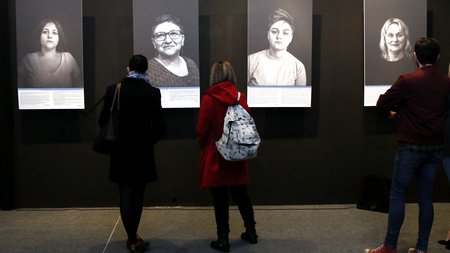
Exhibitions and youth meetings should help to encourage people to take a critical look at their own ideas of truth, their values, standards and life realities.
Inter-ethnic dialogue
The partner organisations facilitate dialogues between survivors of sexualised wartime violence and school pupils of various ethnic backgrounds. An example is our partner organisation Vive Žene in Bosnia and Herzegowina which makes an important contribution to reconciliation.
Political advocacy
The multi-country program “Amplifying Voices” brings together seven partner organisations to develop a joint political strategy whose aim is the legal and social recognition of survivors of sexualised wartime violence.
2. Solidarity and support for survivors
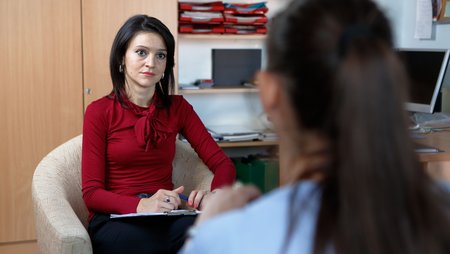
Most survivors of sexualised violence suffer multi-layered long-term consequences that adversely affect their well-being. When they apply for social support measures, they then frequently encounter stigmatisation and ostracism . Survivors have to fight for any acknowledgement of their needs at political and social levels. In order to assert their rights to reparations, partner organisations of medica mondiale engage as follows:
Holistic support for survivors of sexualised wartime violence
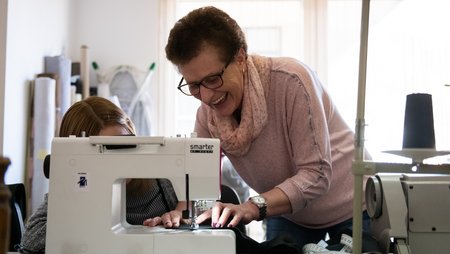
Survivors of sexualised violence receive free, integrated support in the form of psychosocial and medical care, legal assistance and income-generating measures. This also includes the families of the survivors.
Applying for war victim pensions
In Kosovo, Croatia, and Bosnia-Herzegovina, the partner organisations help survivors to apply for a financial compensation. By accompanying them through this application process, the risk of a retraumatisation can be reduced and the chances of approval increased. In Kosovo, the KRCT and Medica Gjakova, together with other local partners, succeeded in changing a law in 2022. This extends the period within which survivors of sexualised wartime violence can apply for reparation payments.
Psychosocial support during court cases
Survivors of sexualised violence benefit from representation, legal advice, and psychosocial support during war crimes trials and court cases on sexualised violence.
Training and awareness raising for specialist staff
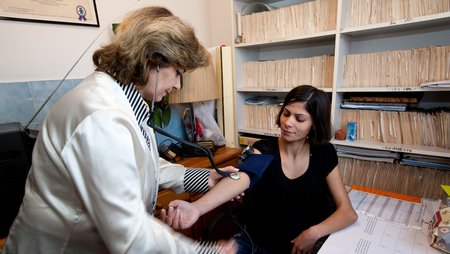
The partner organisations train specialist staff in the healthcare, social and legal sectors on how to adopt a Stress- and Trauma-sensitive Approach when dealing with survivors of sexualised violence. They are also drafting institutional standards.
Advocacy work
The advocacy work aims to improve state reparation mechanisms and their implementation. At the same time, our partner organisations intend to make the health services and legal procedures more stress- and trauma-sensitive.
3. Strenghtening feminist action
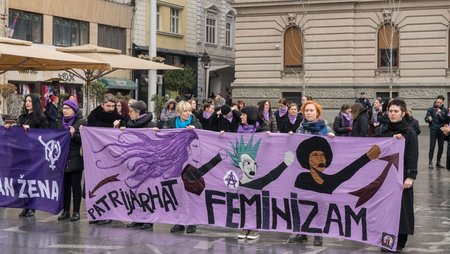
The women’s movements in South-east Europe are widespread but are not very well networked with each other, which makes it difficult for them to assert their demands, given the nationalist tendencies which prevail in the region’s understanding of its own history. Promoting feminist regional civil society co-operation is therefore a strategic component of our work in South-eastern Europe. It can help to enhance the political and societal influence which these like-minded women’s organisations have, as well as the broader impacts of their activities. The focus here is on the following activities:
Regional expertise sharing
The partner organisations promote regional exchange and sharing of approaches to their work, experiences learnt and best practice.
Joint advocacy work by various partner organisations
Based on joint conceptual reflections on "Dealing with the past" from a feminist perspective, the partner organisations develop common definitions of fields of activity on the topic of sexualised wartime violence, in order to strengthen the cross-border advocacy work. For example, our partner organisations in Southeastern Europe took the International Day for the Elimination of Sexual Violence in Conflict on 19 June as an opportunity to conduct cross-border awareness-raising campaigns on this complex issue.
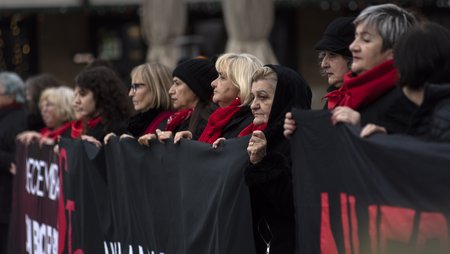
Strengthen and strategically network feminist women’s organisations
Often activists experience ethnonationalist motivated hostility. medica mondiale supports like-minded feminist women’s organisations in their efforts to engage in strategic regional networking and to protect and strengthen each other.
Research on sexualised wartime violence
Research studies investigate the long-lasting consequences of sexualised wartime violence and the impacts of compensation payments. Furthermore, these scientific analyses contribute to improving the legal situation and social recognition of children born of wartime rape. They also contain recommendations for legislative changes and networking.
(Status focal points of work of: 08/2023)
News from Southeastern Europe



